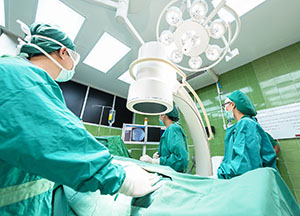In the presence of Egypt’s Grand Mufti, Mansoura University discusses “legal developments in the field of human organ transfer and transplantation”
- Hits: 431

The Faculty of Law at Mansoura University organized a symposium entitled “Legal and Sharia developments in the field of human organ transfer and transplantation.”, In the presence of Egypt’s Grand Mufti, Prof. Shawky Allam, and Chairman of the Supreme Council of the General Secretariat for Fatwa Authorities Worldwide, Prof. Cherif Youssef Khater, President of Mansoura University, Dr. Ayman Mukhtar, Governor of Dakahlia, and Prof. Mohamed Attia, Vice President of the University for Education and Student Affairs, Prof. Mohamed Abdel Azim, Vice President of the University for Community and Environmental Affairs, Prof. Ahmed Shawky Abu Khatwa, Professor of Criminal Law and former Dean of the Faculty of Law, Counselor Mohamed Abdel Mohsen, President of the Egyptian Judges Club, Counselor Dr. Magdy Salama, President of the Alexandria Criminal Court, Prof. Walid El-Shenawy, Dean of the Faculty of Law, the faculty Deans, and Mr. Muhammad Abdel Latif, Secretary-General of the University, Prof. Alaa Al-Tamimi, Vice Dean of the faculty for Community Service and Environmental Development Affairs and the organizer of the symposium, the vice deans, Prof. Muhammad Abdel-Wahab, supervisor of the liver transplant program, members of judicial bodies, members of the Parliament and the Senate, and faculty staff members.
Prof. Cherif Youssef Khater welcomed the Grand Mufti of Egypt and the attendees, stressing that Mansoura University is one of the pioneer universities in Egypt. It is referred to in various international rankings. The university also achieved great milestones and ranked first in the field of organ transplantation, especially kidney and liver transplantation in Egypt. He added that Mansoura University, the pioneer of medicine in Egypt, has taken it upon itself to organize this symposium, which aims to discuss developments regarding the permissibility of recommending the transfer of organs after death, especially since this matter is done in accordance with its legal controls will constitute a new advance in the field of medical treatment for many chronic diseases, far from trafficking in human organs, pointing out that the world is currently witnessing a great and important development in the medical and scientific field, as therapeutic techniques and means have emerged that have contributed to saving many human lives, and among these means is the process of transferring and transplanting human organs, cells and tissues, but despite the positive aspects of these medical methods, it is the legislator and Islamic Sharia jurists must control it with the intention of limiting the use of it without medical necessity.
Dr. Ayman Mukhtar expressed his pleasure for being at Mansoura University, which occupies a great scientific position and which has produced many scholars, ministers, innovators, and scientists for Egypt, and thanks to their excellence, Mansoura has become the medical capital of Egypt, and Dakahlia has become a citadel of knowledge and scholars. He also expressed his pride in his participation in this very important scientific symposium in the prestigious Faculty of Law, which has produced Egypt scholars and figures in law and the judiciary, noting that the issue being discussed by the conference is one of the most important contemporary issues and the focus of everyone’s attention from a legal standpoint.
The governor said that Mansoura University is an essential partner with the governorate in providing all services to citizens, especially health care, in addition to its participation in developing many service sectors.
Prof. Walid El-Shenawy pointed out that the Faculty of Law paid its attention to the most prominent of these phenomena and problems, and subjected them to research and analysis in order to come up with proposals and recommendations that would be of assistance to decision and policy makers. The faculty considered it appropriate to present the subject of the transfer and transplantation of human organs, in order to discuss the controls, procedures, and prohibitions that must be observed in the scope of practicing these operations, and examining whether the current law - Human Organs Regulation Law No. 5 of 2010, and examining whether this law faces problems or obstacles in practical application, and whether it needs amendments.
Prof. Alaa Al-Tamimi said that humanity is witnessing rapid and tangible progress, and the most important of these facts is the issue of human organ transplantation, which is one of the thorny issues about which there are many and conflicting opinions between supporters and opponents. The process of organ transplantation has raised many problems at the ethical, religious, medical and legal levels, despite the issuance of Human Organs Regulation Law No. 5 of 2010, amended by Law No. 142 of 2017 and its executive regulations, which is considered a hope for eliminating the illegal trade in human organs, the controversy over this issue occupies a large area of concern, and the political leadership has paid attention to the file of organ transplantation, and an Egyptian center for organ transplantation and transfer is currently being established in accordance with international standards to serve patients and relieve their burdens and their families.








